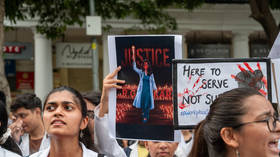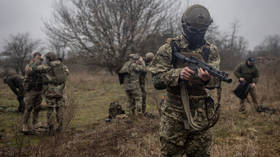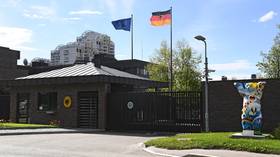Human sacrifices in 2024: Here’s how black magic brings horror to the modern world
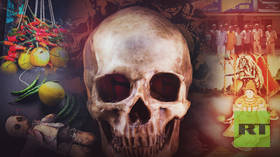
Krishna Kushwaha of Hathras, in the north Indian state of Uttar Pradesh (UP), was the first in his family to get a formal education. To ensure a brighter future for his children, he enrolled them in a hostel. Little did he know that his 11-year-old son Kritarth would fall prey to black magic.
Kritarth was a student of standard II at the DL Public School. On the evening of September 22, he was kidnapped by two of his teachers, the owners of the school, and one of their fathers.
Black magic is defined as the use of supernatural power or magic for selfish motives or purposes. It turns the human mind away from logic and rationality. The occult is not new in India, having been practiced for ages up and down the country. Surprisingly, society doesn’t protest against black magic.
The kidnappers assaulted Kritarth, breaking his collarbone. They then performed an occult ritual, after which the boy was strangled to death.
The school contacted Krishna and told him that his son was not well, and he was being taken to hospital in Agra. Krishna found this suspicious. When the family found their son’s body, they discovered disturbing marks and found that his head had been shaved.
During a subsequent investigation, police visited the site of the black magic rituals and uncovered material linked to the practice, such as occult texts.
Under interrogation, one of the accused confessed that the child had been sacrificed, as the school owners believed it would bring prosperity to the institute.
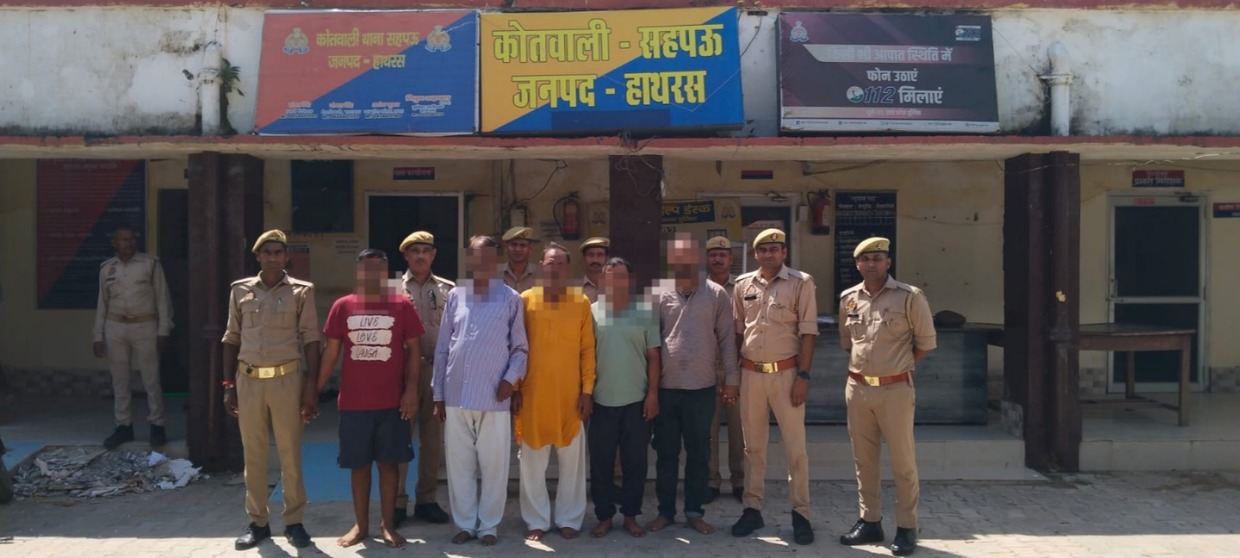
But Kritarth’s ritual wasn’t the first of its kind. The school owner had tried to kill another student; this failed when the boy raised the alarm. The suspects also revealed that the school owner’s father had been practicing black magic since his youth. The family had blind faith in it because they believed it was helping them gain prosperity.
The day after Kritarth’s murder, about 264km west of the location, the corpse of an 84-year-old man was dug up in the middle of the night and its skull was removed. Investigators believe that the exhumation and skull removal was part of a black-magic ritual.
In early 2022, two lottery vendors in Elanthoor, in south India’s Kerala, were victims of a gruesome murder. Investigators exhumed their bodies and found that both women had been tortured, with assault marks all over their corpses and one had a breast missing. The accused reportedly confessed, saying he had been seeking financial gain.
India’s National Crime Records Bureau maintains no specific data for occult killings, listing them with other murders.
Like a slow pandemic, these incidents take a toll on Indian society. Witchcraft involving animal sacrifice, grave-robbing, and murder always finds a place in the Indian news – without making an impact. Roadside advertisements for occult or black magic are visible across the nation, be it in a tier-III city, in villages, or even in India’s Silicon Valley, Bangalore.
Some of the most common ads state: “Get rid of your husband’s extramarital affair,” “100% success in getting a boy child.”
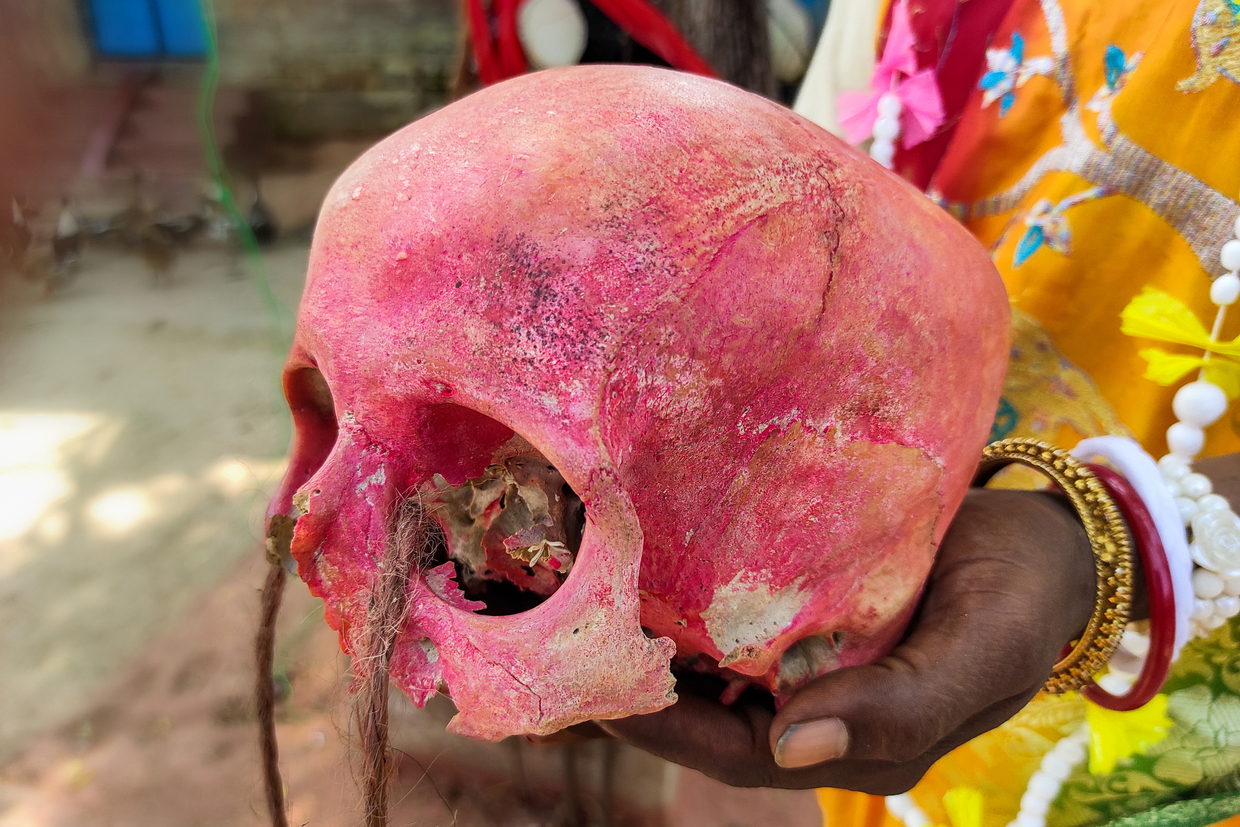
Vikas Rai, a senior lawyer at UP’s High Court, claimed that these cases largely happen because of a lack of awareness and education.
“These things are deeply rooted in our culture because we have strong beliefs,” Rai said. “People who participate in these things face difficulty in distinguishing genuine spiritual practices from malicious activity. Also, we do not have enough law enforcement and prosecution for these crimes.”
According to a peer reviewed journal, ‘Tantric’ or ‘Baba’ occult and black-magic practitioners claim to resolve issues of marital discord, health, and financial problems. Historically, magical practices were primarily restricted to the higher social classes. However, social inequality has democratized black magic and it is now practiced by all other classes.
Of the four Vedas (Hinduism’s religious texts), the Atharva Veda is said to contain secrets related to magic and alchemy. The basic means of exorcism are the mantra (chant) and the yajna (fire ritual) used in both the Vedic and Tantric traditions.
Pratibha Singh, a guest psychologist at the Bureau of Police Research & Development, said these cases result from factors such as low self-esteem, blind faith, and immorality.
“In such cases, we need to check their generational history because it gets passed down generations after they coincidentally get a result, and then their faith turns blind,” she said. “They then go for bigger sacrifices like an animal or a human sacrifice. The problem is so deeply rooted in our culture that it is directly or indirectly practiced in granular ways in almost every family.
“For example, Indian families tend to take cases of mild fever as a bad omen and before going to the doctor, try to remove it by practicing little things at home. All these are bound by faith and superstition where logic does not work,” she said. “This problem is fundamentally rooted in false belief.”

On September 30, Ram Prasad Patwa, a vendor of religious items and occult literature in Rae Bareli district, was busy with orders for texts and products in anticipation of the coming Hindu festival season in October. In a conversation with RT, Patwa remarked that there was a spike in demand during September and October, as many consider this period auspicious for black-magic practices.
“Most cases, in my experience, are either for having a boy child or for financial prosperity,” he said. “I have heard of cases where people practice black magic against their competitors and enemies. The nights of Dussehra (October 12) and Diwali (November 1) are considered to be the best for maximum impact.”
About the murder of innocent people, he said: “The government should ban the practice and not allow the sale or publication of these black-magic books. If it is available in the market and is not illegal, then the people who sell it are not at fault.”
The central Indian state of Jharkhand has emerged as a hotbed of witch-hunting. Between 2016 and 2022, more than 250 women were killed across the state after being branded witches. State police registered 4,556 cases of harassment for such accusations between 2015 and 2020. Official figures for 2021-2022 are unavailable. It is estimated that, since 2015, more than 5,000 cases have been reported: two to three cases a day.
An anti-witchcraft activist in Jharkhand, who wished to remain anonymous, says these killings are solely due to superstition.
“It is the lack of awareness, education, and proper policing in society,” he said. “If communities become aware, these killings will easily stop. Since mobs form in cases where women are branded witches and have been beaten to death, it is difficult for the police to zero in on an accused. Importantly, we need to go deep to the roots to understand where it starts to get rid of this social evil.”
It’s pertinent to note that different Indian states have different laws against black magic or witchcraft. A quick scroll on social media platforms like Facebook and Telegram revealed hundreds of active groups and pages related to black-magic or occult practices in India. No action is taken against these pages by platform authorities.
Former senior police officer in UP, Vikram Singh, believes these cases are the result of failed policing and a failed society.
“All of us know that this is a problem in our society yet there are ads for such fraudulent babas in every nook and corner of the country,” Singh told RT. “In circumstances where society and police are aware of these practices, local intelligence should be active, and if it still happens, then both society and police are to be blamed.”
Krishna Kushwaha and his family are still grieving the loss of Kritarth and are still struggling with the fact that he was killed for black magic. “The school could have asked me for my wealth instead of killing him,” the grieving father said. “I want them to face the same fate as my son.”
